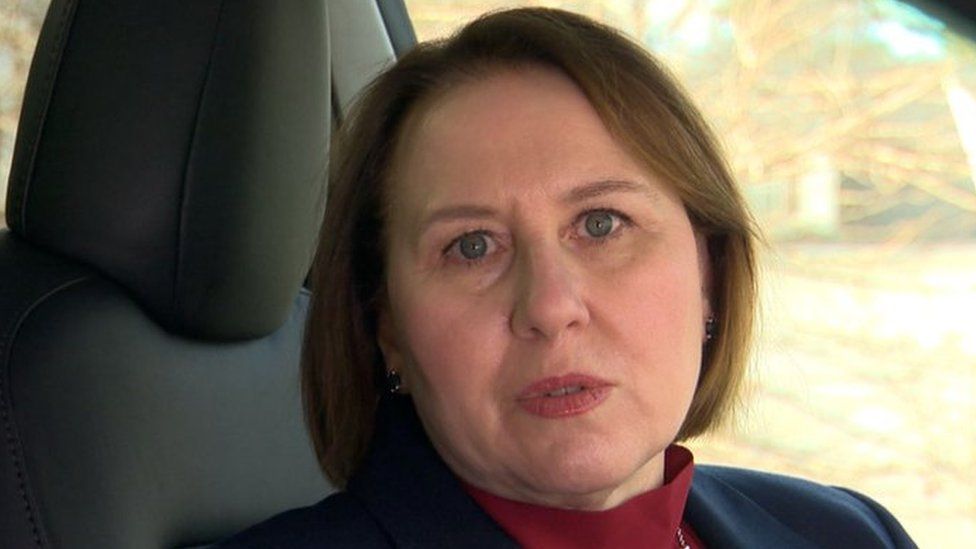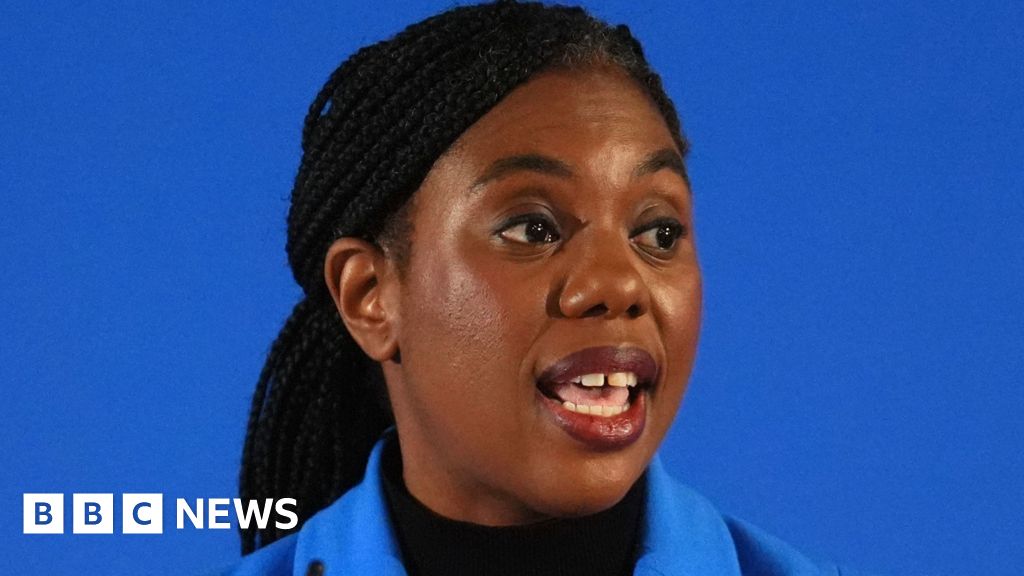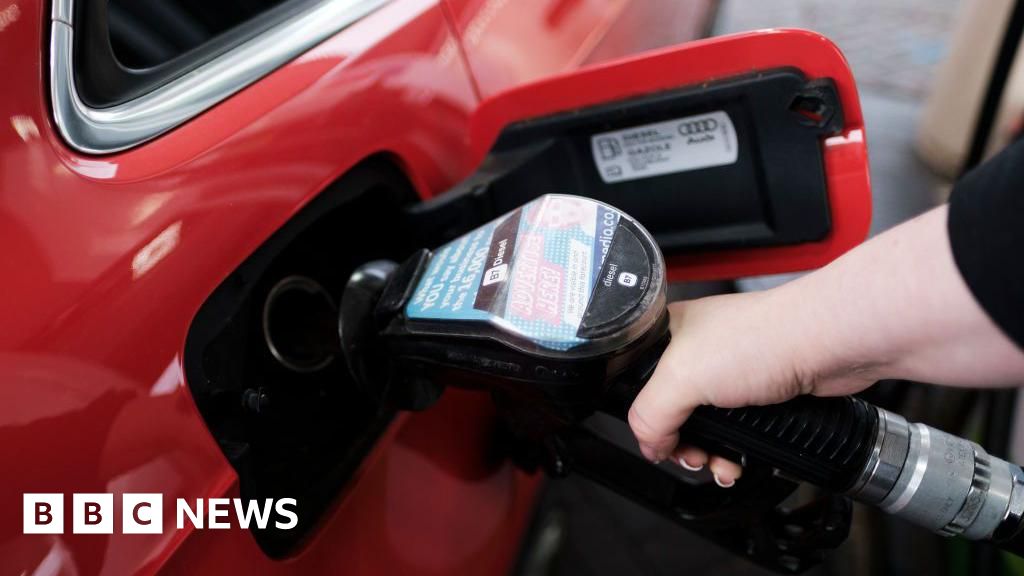ARTICLE AD BOX

Anne Marie Squeo says driving her Tesla has become embarrassing
By Natalie Sherman & Samira Hussain
BBC News, New York
When Anne Marie Squeo received her fiery red Tesla sports utility vehicle in 2020, the 55-year-old marketing and communications professional felt like she had joined a special "club" of people who were doing something to help the environment, while still driving with style.
But last year, as Tesla boss Elon Musk shared right-wing conspiracy theories on Twitter, posted a picture of guns by his bedside, and proposed terms to resolve the war in Ukraine that were adamantly rejected by many of the country's top leaders, Anne Marie's satisfaction gave way to shame.
"It's been very depressing, and sometimes embarrassing to be driving this car around," says Anne Marie, a former journalist who lives in Connecticut and wrote an article about her discomfort. "I wondered if people were making a judgement about me that I wasn't looking for."
Once hailed as the secret to Tesla's success, Elon Musk now appears to be one of its biggest problems, as his steady stream of politically charged social media posts alienates key parts of Tesla's customer base, just as increased competition starts to eat away at the firm's dominance of the electric car market.
The value of Tesla shares plunged by roughly two-thirds last year - the biggest decline since the company went public in 2010 - reflecting the worries, as well as concerns about disruptions to production and the effect of high borrowing costs and a weaker economy on demand.
In December, major investors - many of them long-time allies of Mr Musk - went public with their alarm, accusing him of abandoning Tesla after his $44bn (£36.4bn) takeover of Twitter in October and damaging the car company's brand.
The fact that Mr Musk sold roughly $20bn worth of Tesla shares last year - sales that weighed on the stock and were prompted at least in part by the Twitter purchase - did not help.
"It's cost everybody a tonne of money. Certainly it didn't protect Tesla shareholders," says investor Ross Gerber, who is now seeking a seat on Tesla's board of directors and calling for changes, including starting to spend money on advertising, which Tesla has long prided itself on being able to do without.
Mr Gerber, the head of Gerber Kawasaki Wealth and Investment Management and a self-described friend of Mr Musk, says he remains optimistic about the company's fortunes, and has increased his firm's holdings as the stock has tumbled.
But he says the company needs to have a dedicated chief executive and create its own voice, one distinct from Mr Musk.
"It's very hard to believe now that Elon is a positive advertising force for Tesla," he says.
Mr Musk, who has more than 127 million followers on Twitter, this week rejected suggestions that his unfiltered style on social media was hurting the Tesla brand, saying his mass following "speaks for itself".
But in recent weeks, facing concerns about buyer demand, Tesla announced major price cuts in the US, Europe and China - running as high as 20% on some models in the US.
Analysts expect the move to blunt some of the brand damage, as financial considerations outweigh buyers' moral qualms.
But the move will hurt the firm's profit margins, and for some car purchasers there is no turning back.
Indie Grant, who works in the insurance industry in New Zealand, ruled out a Tesla due to Mr Musk's politics when buying an electric car last year, opting for a Peugeot instead.
Indie Grant ruled out a Tesla when purchasing an electric car last year
"With him being so tied to the brand, buying a Tesla feels very much like a passive but regular announcement of 'I think Elon is great. I love everything he does,'" the 35-year-old says.
"That really wasn't the message we wanted to give and with so many options, taking that out of the running didn't affect the choices too much."
There is little that would prompt a Tesla purchase now, Indie says. "My opinion of Tesla would only change if he weren't associated with it anymore."
Mr Musk has landed in hot water for his social media posts before.
Image source, EPA
Image caption,Elon Musk appeared in a San Francisco court this week for a legal case sparked by one of his tweets
One - about considering taking Tesla private in 2018 - sparked fraud accusations from regulators, which the firm and Mr Musk each paid $20m to settle. He was in court again this week defending the post in a class-action suit brought by shareholders who said they lost money in the share price gyrations that followed its publication.
Another - calling a man involved in the rescue of Thai schoolboys a "pedo guy" - led to a defamation case, which Mr Musk won, after saying he did not think the insult would be taken seriously.
Now, though, Mr Musk isn't just another person tweeting; he is the owner of the platform.
That has raised the prospect of his political views, which he shares with increasing frequency, affecting how Twitter moderates the content on its site - a matter described by many, including Mr Musk, as important to American democracy.
After taking over, Mr Musk moved quickly to remove the ban on former US President Donald Trump, also issuing a tweet that read: "My pronouns are Prosecute/Fauci" - referring to Dr Anthony Fauci, the public face of the US Covid-19 response - causing outrage among liberals, who are the most likely to buy electric cars in the US,Tesla's biggest market.
"This is largely a political story," says Jordan Marlatt, tech analyst at Morning Consult, which tracks public perception of thousands of brands in the US, and has seen a sharp decline in favourability towards Tesla among Democrats since April, when Mr Musk first announced the Twitter deal.
"He's been a lot more outspoken on his personal politics than he has before and that's bleeding over to consumer sentiment."
Mr Marlatt says brands typically recover from damage stemming from politically charged incidents within 90 days.
"What's different for Twitter and for Tesla is that steady drumbeat," he says. "It's every day, almost every hour sometimes."
Anne Marie, who has voted for both Democrats and Republicans, says prior controversies felt like one-off events, but the flood of commentary last year wore her down.
"Elon Musk being a bit of a wild card is not new," she says. "What was different was this level of consistency in doing it every day and the fact that he was really going after social issues with the seeming intent of riling people up."
She says at the moment she can't imagine buying a Tesla the next time she needs a car.
"At the end of the day, there's a lot of variety to choose from - are you going to really align yourself with a company that maybe doesn't represent your values anymore? I wouldn't feel comfortable doing it."

 2 years ago
49
2 years ago
49








 English (US) ·
English (US) ·